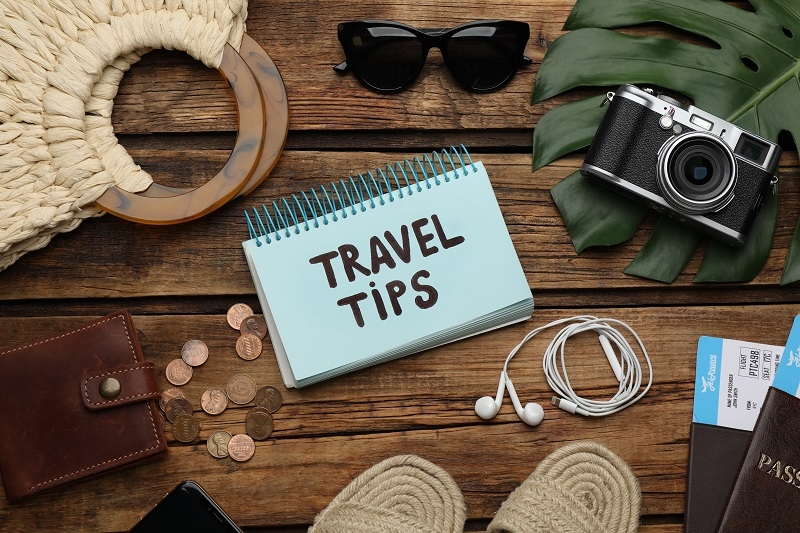
Group travel is often billed as a fun, social, and cost-effective way to see the world. But ask anyone who has tried it, and you’ll hear stories ranging from the unforgettable to the downright chaotic. Whether you’re planning a bachelorette party, a college reunion, or a multi-family vacation, group travel comes with its own set of logistical and emotional challenges.
This blog provides effective planning group travel tips to help you steer clear of pitfalls, reduce conflict, and enjoy your next group vacation from start to finish. Let’s explore organizing trips with friends, group itineraries, budget coordination for groups, best destinations for groups, nand more.
Unlike solo flying, group travel demands compromise, coordination, and communication. Such problems as different budgets, conflicting itineraries, conflicting personalities, and decision fatigue can derail a trip before it takes off.
Fortunately, with proper preparation and planning group travel tips, problems are avoidable. Let's deconstruct the wisest group travel tips to make your next vacation breezy and problem-free.
Before hotels and flights get booked, the initial task of planning trips with friends is establishing expectations. A group phone call, video call, or shared chat string allows meaning to be set and errors avoided.
Ask:
If you hit probable hotspots early, you reduce the chances of surprises later.
"No more than a handful of cooks in the kitchen" is a natural planning problem of vacationing with friends. It has to be a small group or a single leader who takes executive decisions, does fact finding, and pushes the plan ahead.
There are three broad methods:
Solo Planner: Input from one individual who makes final decisions.
Task Delegation: Delegation of work such as flights, eating, and lodging to others.
Democratic Voting: Make decisions through surveys or polls, but put a limit on it with a time factor so that procrastination is not done.
Structure is what it accomplishes. Without structure, even the most carefully designed group itineraries can disintegrate quickly.
Not all destinations are appropriate for group travel. When choosing the top destinations for groups, look for destinations that offer a mix of activities, easy access, and affordable accommodations.
Some US and local popular trends for group travel are as follows:
New Orleans, Louisiana: Culture, nightlife, and walkability.
Austin, Texas: Art, food, and outdoors.
Lake Tahoe: Skiing during winter or hiking and boating during summer.
Tulum, Mexico: Beach enthusiasts, well-being seekers, and culture seekers.
Denver, Colorado: Great for groups who like breweries, hiking, and road trips.
When choosing from the best group destinations, keep in mind access and diversity of experience.
Money is one of the main stressors on group travel. One of the most important planning group travel tips is setting clear and realistic expectations about what people are willing to spend.
How to organize successful budgets for groups:
It is less stressful to have fun when everybody is in monetary balance.
The best group vacation is a balance of planning and the joy of spontaneity. A plan keeps things going along, but nobody wants to be trapped in too-tight schedules.
Effective group plans include the following:
Where you rest makes the holiday. Depending on the size of your group and your budget, there are many options that are suitable.
Take into account:
Holiday lets: Ideal for planning holidays with friends or relatives. Shared common living areas, kitchen, and bedrooms are cost-saving and build camaraderie.
Suites in hotels: Ideal for business groups or if you need hotel facilities.
Resorts with an all-inclusive package: Extremely convenient when visiting a faraway country. Expense is fixed and itineraries easy to plan.
Select a home in a neighborhood so people can go and come as they please. Best group accommodations complement well-planned group itineraries.

It is easier now to update everyone thanks to shared technology.
Use devices such as:
Clarity prevents confusion when organizing with friends. The proper tools make it easy, so no one falls through the cracks.
Conflict will arise regardless of good planning. Travel introduces tension, fatigue, and firmly held opinions.
In order to be able to work effectively with group dynamics:
There are surprises that come with travel—missing flights, misplaced bags, inclement weather. Preparation is one crucial aspect of organizing group travel tips.
What to prepare for:
Planning reduces panic and enables your group to shift gears seamlessly.
Last but definitely not least, when planning trips with friends, one should reflect on what went right and what went wrong.
After return:
This step reinforces bonds, and your subsequent planning round of group travel advice will be even improved.
Even with careful preparation, an actual-time role on the trip helps things to go along really well. Assigning small but essential jobs prevents confusion and doesn't burden one individual.
Examples of helpful roles:
Navigator: Oversees maps, directions, and local transport.
Treasurer: Keeps an eye on shared costs to make it easier to organize the group's budget.
Photographer: Captures photos and oversees the group album subsequently.
Timekeeper: Enforces punctuality for tours, reservations, and checkout.
Wellness Checker: Ensures everyone is well-stocked in energy and is comfortable.
Delegation of tasks supports cooperation and ensures the group keeps running smoothly on a day-to-day basis. It's a helpful strategy that fits into the best planning group trip tips.
Group travel need not be so stressful. Indeed, well-planned, it evokes permanent memories, deepens friendship, and expands your world. By following these group travel planning tips, you can avoid the planning traps and enjoy the group magic of shared experiences.
From picking the perfect destinations to creating flexible itineraries, and from learning the art of coordination on a budget to putting respect for each other, the secret lies in careful communication. Next time you’re tasked with organizing trips with friends, refer back to this guide. Your future self—and your travel crew—will thank you.
This content was created by AI